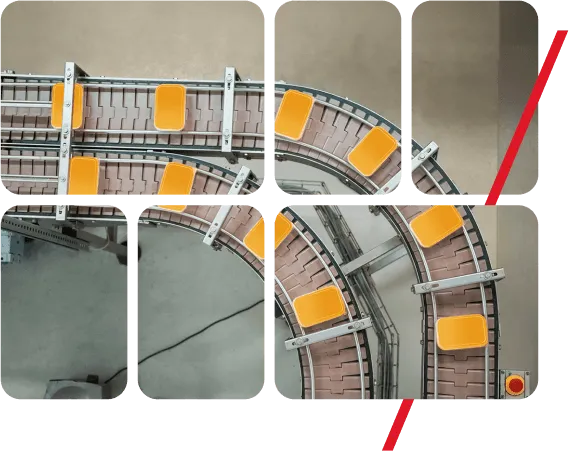In December 2023, the European Union introduced the EU AI Act. This legislation, unanimously agreed upon on December 9, 2023, signifies the world’s first dedicated law on AI, establishing a global precedent in technology governance.
As AI is progressively woven into every facet of contemporary existence, from healthcare to finance, the demand for a thorough legal framework has never been more pressing. The EU’s move mirrors efforts in the US and the UK, where there is a similar emphasis on AI standards related to security, dependability, ethics, and safeguarding of data.
This article explores the importance, intricacies, and potential worldwide influence of the EU AI Act, drawing comparisons with simultaneous advancements in the US and the UK, while also examining the obstacles it encounters in its execution and harmonization across EU nations.
Evolution of AI Regulations in Historical Context
The start of the journey towards regulating AI did not occur in 2023, but rather many years before that, when AI emerged as a scientific field. As AI technology advanced from theoretical ideas to practical implementations, governments and international organizations acknowledged the necessity for guidelines to ensure the safe, ethical, and advantageous use of AI. The European Union, renowned for its proactive stance on digital privacy through the General Data Protection Regulation (GDPR), has taken a leading role in these discussions. However, existing regulations often fell behind in effectively addressing the distinctive challenges presented by AI, such as algorithmic transparency, data bias, and decision-making independence.
The existence of this gap has sparked the creation of different frameworks and guidelines, both within and outside the European Union, with the purpose of steering the ethical progression of artificial intelligence. Particularly noteworthy among these initiatives are the OECD Principles on AI and the European Union’s own Ethics Guidelines for Trustworthy AI.
The fast-paced advancement of AI technology and its increasing integration into important fields highlight the importance of stronger, legally enforceable regulations. This urgency spurred the creation of the EU AI Act, a detailed set of laws specifically formulated to govern AI.
Details of the EU AI Act of 2023
The EU AI Act of 2023 has a central objective of guaranteeing the safety, transparency, and accountability of AI systems. This is intended to instill confidence in the public regarding this rapidly developing technology. To accomplish this, the Act categorizes AI systems into different levels of risk, ranging from minimal to high. Each level is subject to different degrees of regulatory examination. For instance, AI applications in crucial sectors like healthcare, transportation, and legal decision-making are considered high-risk and must adhere strictly to safety and transparency guidelines.
First and foremost, the EU AI Act of 2023 seeks to make sure that artificial intelligence systems are safe, transparent and accountable in order for people’s trust in this emerging technology. The Act categorizes AI systems by risk level, which ranges from minimal to high levels of scrutiny. For instance, AI applications in vital sectors such as healthcare, transportation and legal decision-making fall under high risks that necessitate compliance with strict safety measures of transparency.
The Act requires mandatory risk assessments, adherence to stringent data governance protocols and human supervision of AI decision-making processes. The Act also stresses the preservation of fundamental rights such as privacy and non-discrimination, consistent with those adopted by the EU.
In order to achieve compliance, the Act contains an elaborate structure for AI developers and users which includes provisions on transparency of information, data quality and accountability. AI systems should be designed in such a way that human can understand their operations and trace them, thus reducing the “black box” feature of artificial intelligence decision-making. In addition, the Act requires periodic evaluations and reporting to check on the continued conformity of AI systems with its provisions.
Are you interested in learning how to leverage AI for your business? Do you want to know the best practices and strategies for deploying AI solutions effectively and efficiently?
If the answer is yes, then you should DOWNLOAD our latest whitepaper on AI, “The Definitive Guide to AI Strategy Rollout in Enterprise.”
Comparing US and UK AI Frameworks
The global AI landscape is uneven, with the approach taken by US and UK differing from that of EU’s all-encompassing legal framework. The role of the National Institute of Standards and Technology (NIST) in the United States is crucial because it defines AI policies, which are mainly aimed at improving security in terms. The NIST framework focuses on the creation of strong, secure and trustworthy AI systems considering risks associated with deployment in sectors such as defense or cyber security.
In contrast, data privacy and AI ethics are emphasized in the UK’s approach following Brexit.
However, the UK government is currently trying to develop a regulatory framework that strikes a balance between innovation and public trust in AI. This entails making sure that AI systems are used ethically, preserving the data privacy of citizens and ensuring transparency in decision-making with regard to AI. The UK’s emphasis on ethical concerns differs slightly from the EU approach, which has a broad regulatory focus and signals an intention of being at the forefront in this aspect.
In comparison, the EU AI Act has a broader scope as it includes more types of AI applications and imposes tougher regulations for high-risk AIs. While the US and UK models target particular elements of AI such as security or ethics, EU Act intends to implement a comprehensive governance framework that could serve as an international standard for future global regulations.
Effects of Global AI Practices and Industry
The EU AI Act will have a significant influence on global practices of AI and the technology sector. With the EU being a large market and having regulatory powers, global AI developers and tech companies are likely to conform their products and services with the Act’s standards in order to retain access into the European Union. This convergence may unwittingly create a global de facto standard, forcing other jurisdictions to follow suit or risk falling behind in terms of AI safety and morality standards.
The reaction of the industry to the Act has been varied. Although some consider it a valuable process toward the development of trustworthy AI, others are worried that strict regulation may suppress innovation. The Act could result in higher cost of developing and deploying AI for smaller companies and startups, which may not afford the complex regulatory demands.
Problems with Implementing the EU AI Act
Challenges are associated with the implementation of EU AI Act across different countries within the European Union. The first is the compatibility of Act provisions with the state’s legal and regulatory framework. This harmonization requires a consideration of local contexts and legal systems for the implementation to be in line with national laws.
Enforcement is another critical challenge. The EU will have to implement strict mechanisms of compliance and enforcement for the Act. It entails establishing regulatory bodies with the relevant AI knowledge, developing compliance assessment guidelines that are clear and addressing penalties for non-compliance.
In addition, there is a danger that the Act may unintentionally promote innovation. Finding a middle ground between regulation and innovation is essential to keep the EU competitive in terms of AI development.
Future Implications
The EU AI Act is a milestone in the path towards responsible governance of AI. With the further development of AI, it is inevitable that this Act will be amended to address new challenges and innovations. The Act serves as a benchmark for other nations and regions, which may result in the adoption of an international consensus regarding AI regulation.
The EU AI Act of 2023 is a landmark achievement in the governance of artificial intelligence. Though it presents challenges when it comes to implementation and innovation, its ability for global standards in ethic secure competent AI is beyond doubt. The impact of the Act goes further than just the EU, influencing how AI is practiced globally and leading to industry norms; potentially paving a way for international cooperation in AI governance.
Are you interested in learning how to leverage AI for your business? Do you want to know the best practices and strategies for deploying AI solutions effectively and efficiently?
If the answer is yes, then you should DOWNLOAD our latest whitepaper on AI, “The Definitive Guide to AI Strategy Rollout in Enterprise.”








































